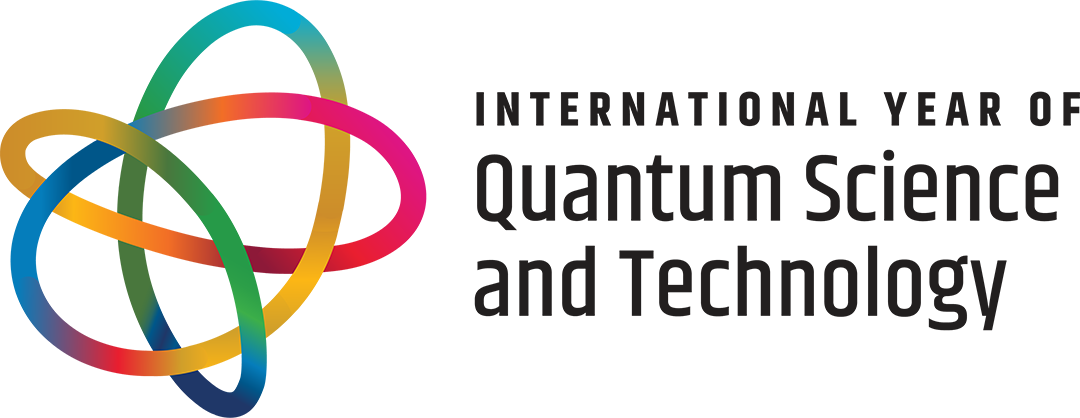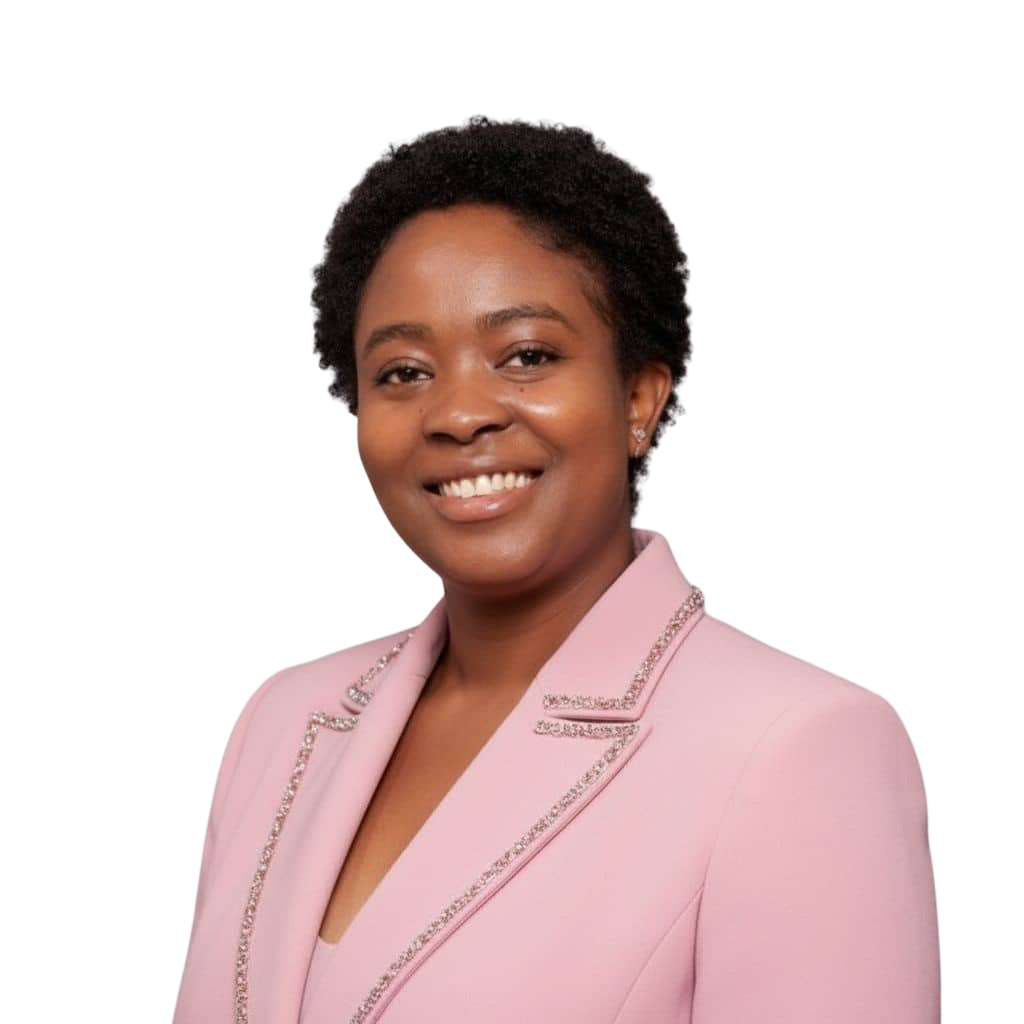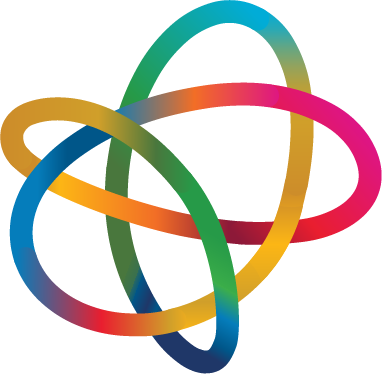Temitope Adeniyi: A Young Leader Shaping the Quantum Future in Africa
Interview with Temitope Adeniyi, a PhD computer science student at Cleveland State University in the United States, one of the leaders and conveners of the Africa Quantum Consortium.
I have interviewed many scientists and leaders from the quantum world, but few have moved me as much as Temitope Adeniyi, a PhD student in computer science at Cleveland State University in the United States. Cheerful, always smiling, she speaks with such conviction that it is contagious. Her infectious enthusiasm about the future makes you feel that we are already there.
As a quantum scientist, she explores the intersection of quantum systems and artificial intelligence (AI), while as an activist, Temitope is determined to reconfigure quantum science in Africa—yes, the whole continent—to make it as strong as any other leading region on the global stage. During our conversation, we explored her life and career as a research scientist, and her leadership in building “the biggest Deep Tech Research Institute in Africa,” as stated on her LinkedIn profile.
“In my dissertation, what I am doing is applying classical intelligent agents to help improve quantum systems,” Temitope clarifies. Intelligent agents are autonomous systems that can make decisions and perform tasks with limited or no human intervention.
While her research has many applications, she is eager to contribute to the health sector, focusing on neurology. “I am interested in the applications of quantum sensors and AI in biological systems, especially in medical hardware, and one of my ambitions is to develop a quantum sensor that can detect weak electromagnetic signals in the brain to identify neurological diseases, even before they are detected by other medical means. That is my goal.”
From Reluctant Scientist to Quantum Leader for a Whole Continent

Temitope’s early years were not precisely defined by a love of science. “When I was in school, I was a good writer and didn’t really like science—I thought it was too hard,” she recalls. Initially, she chose to study arts until her father encouraged her to “first try science.” Reluctantly, she agreed, not yet knowing how this decision would change her life.
Her turning point came during a university strike in her fourth year. Rather than waiting for classes to resume, Temitope began homeschooling with her brother, who transformed her view of science. “He taught me math, physics, and chemistry through stories that were so interesting that I ended up loving them, especially physics.”
She completed both her undergraduate and master’s degrees in physics at Osun State University and the University of Ibadan, respectively, both in Nigeria. By the end of her master’s degree, she taught herself programming and applied it to physics. “I loved it so much!” She exclaims with a spark in her eyes. “Then I wanted to know more about the basics of computer science. And that is why I chose quantum computing, because it is a balance of everything I love: math, physics, and coding.”
Building a Quantum Network in Africa
Early this year, while doing her PhD in Cleveland, Ohio, Temitope helped reconvene the Africa Quantum Consortium (AQC)—a nonprofit initiative dedicated to building Africa’s capacity in quantum technologies and deep tech.
The AQC brings together researchers, institutions, and policymakers across 15 African countries, creating a network for collaboration and knowledge exchange. Its motto—“Forging Local Strength, Driving Global Impact”—captures the organization’s vision: to make Africa not just a participant but a leader in the global quantum revolution.
Her passion for the AQC was born out of many setbacks she encountered as a graduate student in Nigeria. “When I was doing my PhD in Nigeria, I wanted to learn new technologies, and there were some resources but there were not enough. That let me to change my field many times,” she reminisces. Such instability prevented her from finishing her PhD in Nigeria, and then she moved to Cleveland, where she was offered the opportunity to work in quantum technologies.
But Temitope is not the kind of person who gives up easily on her country; she is determined to change that situation. “By the time I finish my PhD, I want to be able to go back to my home country in Africa and have the assets and equipment to do research in high tech. I want to go back home and help build the infrastructure so Africans can do impactful work in Africa. We don’t want to be left behind in quantum computing. With the AQC, we want to be able to provide resources to our researchers and funding for quantum innovation, to be able to develop our own quantum computers, or to give researchers and students cloud access to quantum computers.”
The AQC is still in its early stages, and starting is always a challenge, but she and her team are determined to succeed. “When we pitch the AQC, people say, ‘No, this is impossible,’” Temitope notes. “But we’re not giving up. We’re connecting leaders, researchers, and students to create a future where Africa is united and recognized in quantum innovation,” she asserts. “The goal of the coordinators is to return to their countries [in Africa], talk with local stakeholders, connect with researchers, institutions, and students, and connect the dots between them. And we are not doing it alone; we are collaborating with other quantum communities in Africa, and we hope to improve the state of education, research, and innovation.”
“Our vision is to create a comfortable space where current and aspiring leaders in quantum can talk about their goals, their fears, and ideas for shaping a hopeful future in quantum. Above all, we want to foster unity in Africa, rather than fragmentation, and that is why we have national coordinators in 15 countries, 9 onboarded, and 6 pending.”
The recently published AQC White Paper on the State of Quantum Science and Technology in Africa expands on this vision. It outlines strategies such as building a Pan-African quantum ecosystem, launching the Africa Quantum Fund to support education and research, promoting quantum alignment with Africa’s development agenda, and advancing digital sovereignty through home-grown innovation. “Together, these efforts represent our roadmap toward a united and self-sustaining quantum future for Africa.”
The Challenge of Representation
Despite her accomplishments, Temitope’s path in the U.S. scientific community has not been easy. “As a woman coming from Africa in the USA, I had impostor syndrome,” she admits. “I wondered, am I really that good? Will I be able to succeed or make an impact in this field?”
The skepticism she faced was often unspoken but deeply felt. “Even when I was doing well, I had to prove myself,” she recalls. “Some people didn’t even hide it, they’d ask, ‘You’re from Africa, so what do you know?’” But instead of allowing those doubts to break her, Temitope used them as fuel. “The pressure was there, but instead of letting it discourage me, it became my drive to do more, to talk about my work, to inspire others. That’s why I’m loud about what I do. I share it on LinkedIn, I mentor students, and I want people back home to see that it’s possible to succeed in this field.” That’s also why the AQC organized the event Q4 Quantum Roundtable on December 12 focusing primarily on women, “to ensure more voices like mine have the visibility, confidence, and support to lead in quantum science.”
Lessons in Perseverance
For Temitope, the barriers she’s faced—being African, Black, and a woman in a male-dominated field—are not limitations but motivations. “At the end of the day, what matters is what you can do,” she says firmly.
Her message to young Africans and aspiring scientists everywhere is simple yet profound: “There is nothing too hard. Never give up on the first try.” She reminds them to keep dreaming, even when those dreams seem impossible. “When I look back, I realize that if I had given up, I wouldn’t be here. Keep on dreaming, even if your dream looks unrealistic—those dreams help you see opportunities when they appear.”
For general questions about IYQ, please contact info@quantum2025.org. For press inquiries, contact iyq2025@hkamarcom.com.



